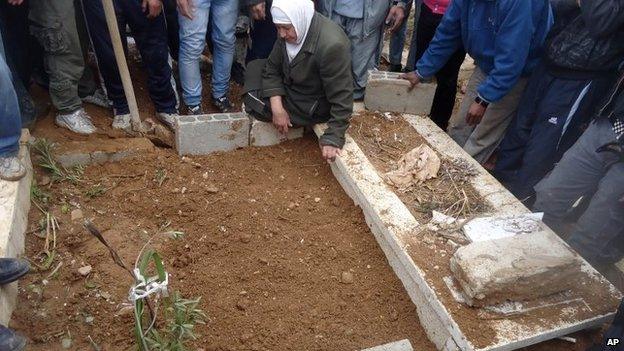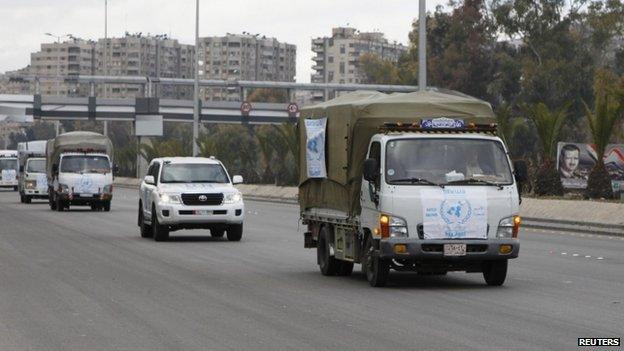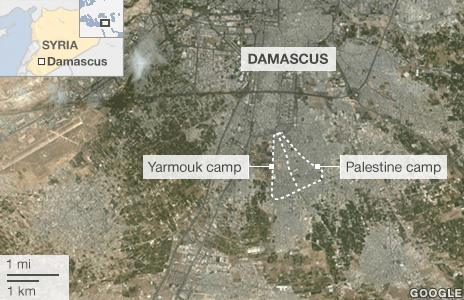'Aid enters' besieged Damascus camp of Yarmouk
- Published

Photos from activists in the camp have shown funerals for residents who have died during the siege
Aid has reached the besieged Palestinian camp of Yarmouk in the Syrian capital Damascus for the first time in months, Palestinian officials say.
Some 18,000 Palestinian refugees in the camp have not seen an aid delivery since September.
It is not clear how much aid was allowed to enter the camp on Saturday.
Reports from inside Yarmouk say at least 40 residents have died from hunger and lack of medical care.
"A first batch of food aid entered successfully this morning and distribution to residents has begun," Palestine Liberation Organisation official Anwar Abdul Hadi told Agence France-Presse, describing the delivery as a trial run.
Anwar Raja, a Palestinian official, told AP news agency that much of the material was carried "on the shoulders'' of members of the Popular Front for the Liberation of Palestine - General Command (PFLP-GC), whose militia has been allied to the government of President Bashar al-Assad.
The PFLP-GC has previously clashed with the rebel Free Syrian Army (FSA) over control of the camp. Rebels seized much of Yarmouk in December 2012 but fighting there has continued.
'Collective punishment'
The UN Relief and Works Agency (Unrwa) had earlier warned that the humanitarian situation inside Yarmouk was "worsening dramatically".

UN Relief and Works Agency officials tried unsuccessfully to deliver aid to Yarmouk during the week
Unrwa spokesman Chris Gunness told BBC News that Saturday's development was significant, "but we're talking here about 200 food parcels, which is nothing like enough to meet the needs".
He has spoken of widespread malnutrition, with people reduced to eating animal feed and women dying in childbirth because of a lack of medical care.
UN human rights commissioner Navi Pillay said on Friday that government forces "and affiliated militias" appeared to be imposing collective punishment on the camp's civilians.
An Unrwa convoy of food and medical supplies tried to reach the camp this week, but security fears prevented it from travelling beyond a government checkpoint, the agency said.
Yarmouk was once home to Syria's largest population of Palestinian refugees but most have fled since the conflict began. A community of 160,000-180,000 now numbers some 18,000.
Aid officials in Damascus recently told the BBC that "the gates of Yarmouk" were slammed shut in July and almost no aid has been allowed to enter since then.
Ms Pillay said numerous attempts had been made in the past four months to bring food and medical supplies into the camp, and "very little aid was getting through during the nine months prior to that."
